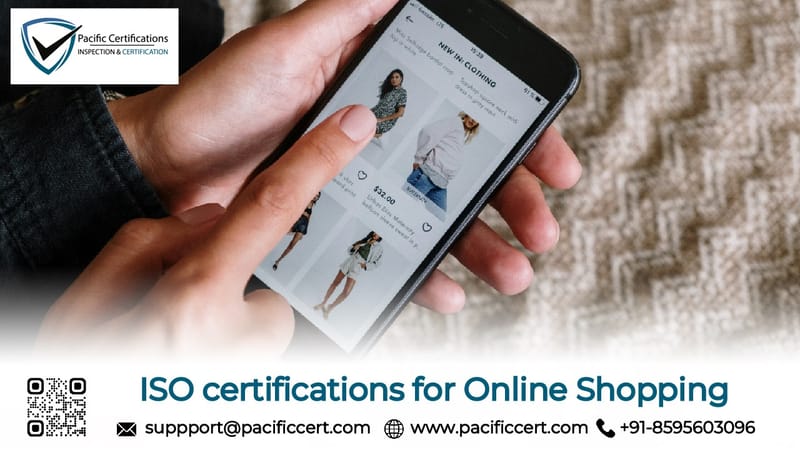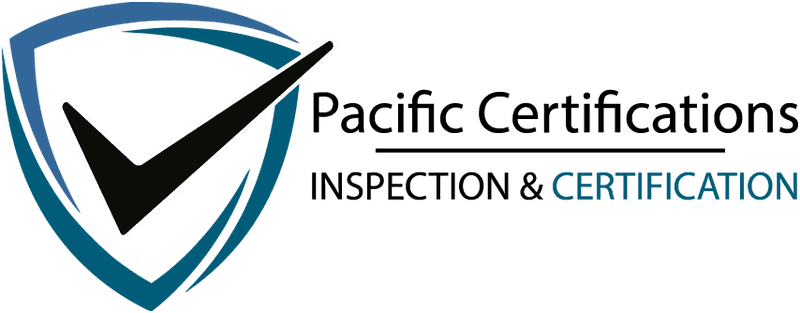ISO Certifications for Online Shopping Services, Requirements and Benefits

Introduction
Online shopping service providers operate in a highly intensive and trust-driven environment where platform reliability, data protection, payment security, customer experience, logistics coordination, and regulatory compliance directly influence brand credibility and revenue sustainability. E-commerce companies manage complex ecosystems that include online storefronts, payment gateways, customer databases, inventory systems, third-party logistics, cloud infrastructure, customer support, and digital marketing platforms.
As online retail continues to expand across borders and devices, expectations on e-commerce businesses have shifted from basic online presence to structured governance, secure data handling, uninterrupted service availability, and consistent customer experience. Regulatory scrutiny around data privacy, cybersecurity, consumer protection, and service continuity has also intensified globally.
ISO certifications provide online shopping service providers with internationally recognized frameworks to demonstrate controlled operations, secure information management, dependable service delivery, and continuous improvement across their digital commerce lifecycle.
In online shopping, trust is built not only by what customers see on the screen, but by how securely, consistently, and responsibly every transaction is managed behind it.
Quick Summary
ISO certifications provide online shopping service providers with globally accepted management system frameworks to control service quality through ISO 9001, protect customer and transaction data through ISO/IEC 27001 and ISO/IEC 27701, ensure platform availability through ISO 22301, manage operational and cyber risks through ISO 31000, and support environmental responsibility through ISO 14001. These certifications help e-commerce businesses deliver secure, reliable, and compliant online shopping experiences while building long-term customer trust.
For more information on how we can assist your online shopping business with ISO certifications, please contact us at [email protected]
Applicable ISO Standards for Online Shopping Services
Below are the most relevant ISO standards applicable to online shopping platforms, e-commerce marketplaces, direct-to-consumer (D2C) brands, and digital retail service providers.
ISO 9001: Quality Management Systems
ISO 9001 provides a structured framework for managing end-to-end e-commerce processes, from product listing and order placement to fulfillment, returns, and customer support. For online shopping services, ISO 9001 focuses on process consistency, customer satisfaction, and continual service improvement across digital and physical touchpoints.
ISO/IEC 27001: Information Security Management Systems
E-commerce platforms handle sensitive data such as customer personal information, login credentials, payment details, transaction histories, and supplier integrations. ISO/IEC 27001 establishes a risk-based approach to protecting this information.
ISO/IEC 27701:2019 – Privacy Information Management Systems
ISO/IEC 27701 extends ISO/IEC 27001 to address privacy governance and personal data protection. It is especially relevant for online shopping platforms operating across multiple jurisdictions with varying privacy regulations.
The standard supports transparent data handling, consent management, and customer trust in digital commerce environments.
ISO 20488: Online Consumer Reviews – Principles and Requirements
ISO 20488 offers guidelines for the management of online consumer reviews, ensuring they are reliable, transparent, and not misleading. It helps build consumer trust in online shopping platforms by promoting honest and transparent customer feedback.
ISO 10002: Quality Management – Customer Satisfaction – Guidelines for Complaints Handling
ISO 10002 provides guidelines for handling customer complaints effectively. In online shopping, where customer service can significantly impact business reputation, this standard ensures that complaints are managed in a way that enhances customer satisfaction and loyalty.
ISO 22301: Business Continuity Management Systems
Downtime, cyberattacks, cloud outages, or logistics disruptions can immediately halt online sales. ISO 22301 ensures that e-commerce businesses can maintain or rapidly restore critical operations during disruptive events.
ISO 45001: Occupational Health and Safety Management Systems
ISO 45001 focuses on occupational health and safety (OH&S) management systems, helping organizations provide safe and healthy workplaces. For online retailers with warehouses and delivery staff, this standard ensures that the working environment is safe and compliant with health regulations.
ISO 14001: Environmental Management System (EMS)
With increasing attention on sustainability, online shopping services are under pressure to manage packaging waste, returns logistics, energy consumption of data centers, and supplier environmental performance. ISO 14001 provides a structured approach to environmental responsibility.
Click here to find out more applicable standards to your industry
What are the Requirements of ISO Certifications for Online Shopping Services?
Online shopping service providers seeking ISO certification must establish and maintain documented policies, procedures, and records aligned with the selected ISO standards. Key requirements include the following.
ISO 9001:2015 – Quality Management Systems
Defined workflows for product listing, order processing, fulfillment, returns, and refunds
Review of customer requirements and platform terms before service delivery
Performance monitoring of delivery timelines, order accuracy, and customer complaints
Control of third-party logistics, payment processors, and technology vendors
Handling of non-conforming services and service failures
Customer feedback analysis and corrective actions
Internal audits and management reviews
ISO/IEC 27001:2022 – Information Security Management Systems
Identification of information assets including customer databases and transaction systems
Risk assessment for cyber threats, fraud, and unauthorized access
Access control, authentication, and encryption measures
Secure development and change management for e-commerce platforms
Incident detection, response, and breach notification procedures
Backup, recovery, and system availability controls
ISO/IEC 27701 – Privacy Information Management
Privacy policies and customer data handling procedures
Consent management for marketing and data processing
Handling of data subject rights such as access and deletion
Controls over third-party data processors and cloud services
Privacy impact assessments for new features or integrations
ISO 22301:2019 – Business Continuity Management
Identification of critical e-commerce services and dependencies
Business impact analysis for platform downtime
Disaster recovery and IT continuity planning
Regular testing of continuity and recovery procedures
ISO 14001:2015 – Environmental Management Systems
Identification of environmental aspects such as packaging waste and logistics emissions
Compliance with environmental regulations and client requirements
Waste reduction and recycling initiatives
Monitoring of energy usage in operations and data hosting
Tip:Start by mapping one complete online shopping cycle—from customer login and order placement to payment processing, fulfillment, delivery, returns, and support—against ISO requirements to identify security, service, and compliance gaps early.
For further information on how we can assist your online shopping services with ISO certifications, contact us at [email protected]
What are the Benefits of ISO Certifications for Online Shopping Services?
ISO certifications are suitable for e-commerce marketplaces, D2C brands, subscription platforms, and digital retail service providers. Key benefits include:
More consistent customer experience and service reliability
Stronger protection of customer and payment data
Reduced risk of cyber incidents, downtime, and fraud
Improved regulatory and contractual compliance
Higher credibility with customers, payment partners, and investors
Better readiness for audits, tenders, and platform partnerships
The global e-commerce market continues to expand at a rapid pace. According to multiple industry forecasts, global online retail sales are expected to exceed USD 8 trillion, driven by mobile commerce, cross-border trade, and digital payment adoption. Emerging markets in Asia, Africa, and Latin America are projected to contribute over 40% of new e-commerce growth by the end of the decade.
At the same time, cybersecurity risks are escalating. Industry data indicates that cybercrime losses linked to online retail are expected to surpass USD 10 trillion annually by 2030, with data breaches and payment fraud being the most significant threats. Regulatory enforcement around data protection and consumer rights is also intensifying globally.
Benchmarking studies show that e-commerce companies implementing structured quality, information security, and continuity management systems experience 25–40% fewer service disruptions, lower fraud rates, and higher customer retention. Soon, ISO-aligned governance—particularly ISO 9001, ISO/IEC 27001, ISO/IEC 27701, and ISO 22301 is expected to become a baseline requirement for serious online shopping platforms operating at scale.
How Pacific Certifications Can Help
Pacific Certifications, accredited by ABIS, acts as an independent certification body for online shopping service providers by conducting impartial audits against applicable ISO standards. Our role is to objectively assess whether documented management systems and operational practices conform to international ISO requirements, based strictly on verifiable evidence.
We support online shopping businesses through:
Independent certification audits conducted in accordance with ISO/IEC 17021
Objective assessment of platform operations, data security controls, and continuity planning
Clear audit reporting reflecting conformity and certification decisions
Issuance of internationally recognized ISO certificates upon successful compliance
Surveillance and recertification audits to maintain certification validity
If you need support with ISO certification for your online shopping services, contact [email protected]or +91-8595603096.
Author: Ashish
Read More at: Blogs by Pacific Certifications

